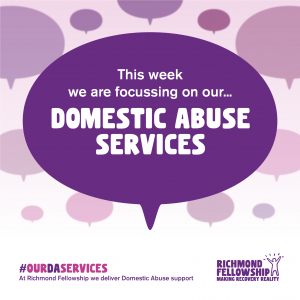Our Domestic Abuse Services – Children Therapy
 According to Public Health England, over 800,000 children witness domestic abuse a year. A staggering figure that will require huge support to ensure these children still have a healthy and positive development into adolescence. We must support and safeguard young people and children impacted by domestic abuse, as well as addressing the emotional, cognitive and behavioural impact that can be developed from witnessing domestic abuse. Delivering children therapy is just one way we work to address the impact of domestic abuse.
According to Public Health England, over 800,000 children witness domestic abuse a year. A staggering figure that will require huge support to ensure these children still have a healthy and positive development into adolescence. We must support and safeguard young people and children impacted by domestic abuse, as well as addressing the emotional, cognitive and behavioural impact that can be developed from witnessing domestic abuse. Delivering children therapy is just one way we work to address the impact of domestic abuse.
Our Children Therapy is delivered in many different ways, and dependant on age; though most support is delivered through 1:1 sessions. Our service enables children and young people to address the emotional impact of domestic abuse. By offering a safe, consistent and confidential space, children and young people are able to process difficult and confusing experiences. Our play and creative arts therapy sessions are non-directive and child-centred, we encourage young people to explore what best works for them and their needs. You can find out more about this support and how to be referred here.
Today we are sharing the experiences of the children we support, collated and presented by our Children Therapy Practitioners. We hope to give some insight into what support looks like for children and their families impacted by domestic abuse. You can find out more about our range of domestic abuse services here.
The names have been changed to protect the identities of people we support.
Lydia’s support through Children Therapy
In sessions Lydia has mentioned that she feels calm and relaxed and that most of the time she doesn’t really feel like this. Especially when she’s at school she feels overwhelmed with all the noises, the people and busyness of the school day.
In our sessions, we have been identifying the things that Lydia already does to help her find that calmness, especially when she feels like she may be emotionally overwhelmed. Lydia has identified, going to her bedroom for ‘time out’ or to ‘cool off’ as a good thing to do to take her out of an emotional situation. Lydia also uses singing and dancing for the times she has lots of feelings, singing and dancing is especially helpful for when she feels hurt, or that she may say something she doesn’t want too.
I have been working closely with Lydia’s mum in tandem to my sessions with Lydia, to think about things mum could be using at home to support with Lydia’s emotion regulation. Mum recognised that Lydia loves making art and crafts, so they created their own feelings cards so Lydia can safely show mum her feelings. They have also been practising some mindfulness together, such as body scans, nostril breathing and belly breathing. I have been talking to mum about the neuroscience around mindfulness how it can support the left and the right side of the brain to work together, emotion + rationale = wise mind!
For mum this has been something she has found helpful too and has invested in her own self soothing and to help practice her own mindfulness.
Charlie’s support through Children Therapy
Charlie has engaged well with therapy and has attended 9 of his scheduled 12 sessions, he has used the sessions to create a therapy space that is meaningful to him. Charlie has been reflecting on his past experiences of loss and trauma. He reflected that:
‘I have thought about stuff in the past that I have never thought about, and this has helped me to feel better about the past’.
Charlie has used the therapy space primarily for talking and said:
‘this is the calmest I have ever felt, I have found it hard to speak to other people, at school or with mum. Coming to therapy feels good’.
He has been able to express things that he has felt unsure about and been able to identify how he wishes to change parts of his life.
Charlie wishes to continue with therapy and understands that it has a positive impact on his life and his relationships. This was felt too by mum who has said she has found Charlie to be much calmer at home and their relationship, which was fraught at times, is becoming closer. Charlie has been supportive towards mum and her own health needs.
We hope hearing these experiences helps understanding the impact domestic abuse can have on children, and what support can look like. Make sure you continue to follow along with #OurDAServices to find out more about the support of our domestic abuse services. Stay tuned for our 16 Days of Action against Domestic Abuse campaign beginning on 25 November. Follow us here on Twitter, and like our Facebook page.















